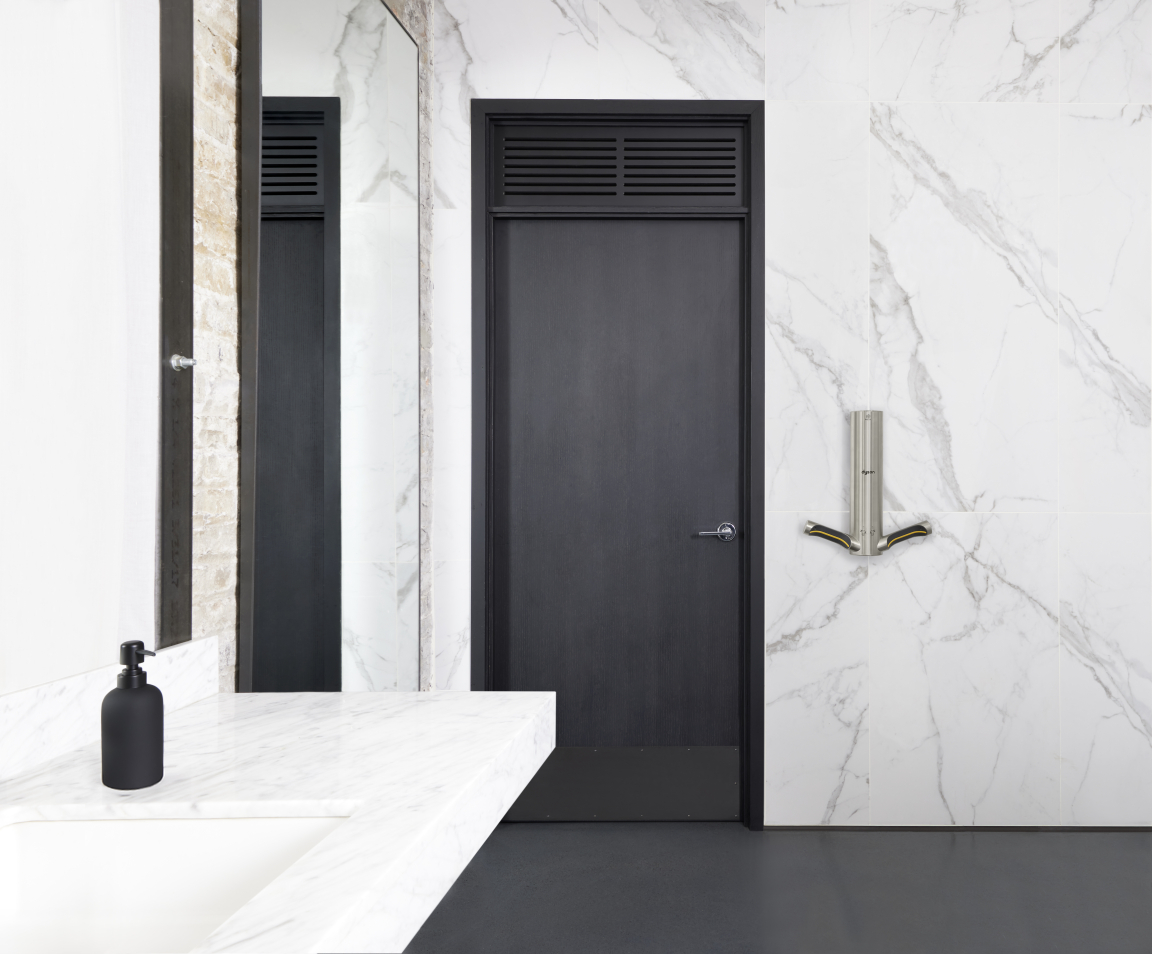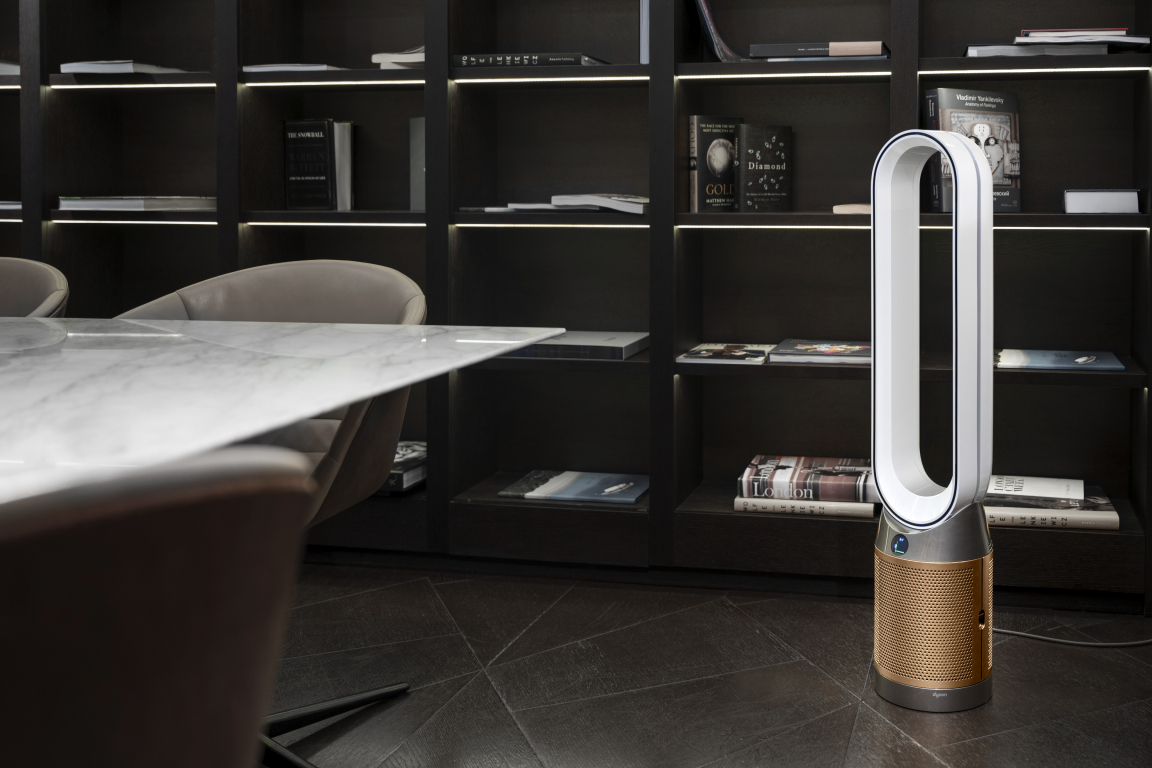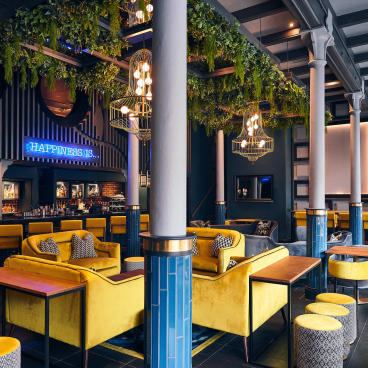Sustainability through lean engineering: It’s in Dyson’s DNA.

Doing more with less is part of Dyson’s DNA. As engineers, the team looks for problems to solve. They are relentlessly dissatisfied and instinctively want to improve things, to make them more efficient while using fewer resources.
Dyson calls it “lean engineering” and it’s one of the brand's core philosophies. It enables them to use science, engineering and behaviour change to reduce their impact and that of their products. It is only by improving their technology and using resources more effectively that they feel they can do more with less, and make increasingly efficient products.
Here, their approach is explained…
Invention and innovation require leaps of faith and the desire to try new approaches: such as using cyclones rather than wasteful, one-off bags; or high-speed ‘air knives’ rather than energy-hungry heaters.
Examples of this are evident in every machine: faster, more efficient motors that use less energy; cleaner, safer, more energy-dense batteries; quicker, more efficient product design; thinner and stronger plastics; or longer-lasting technologies like LEDs.
Whether it's through our pioneering technology, our physical workspaces, or our philanthropic activities and education, it's essential that sustainability remains at the heart of our approach.
Hand drying technology that’s energy efficient
When designing products, we use a process called Finite Element Analysis to predict how each new prototype will react to real-world forces, such as vibration and heat. This enables us to make small, iterative changes, like trimming the thickness of parts, without sacrificing durability or performance.
For example, our Dyson 9kJ hand dryer is engineered to last, having been exposed to real-world environments to ensure it can withstand the pressures of high usage in washrooms; drying hands quickly, yet using just 9.1 kilojoules of energy per dry.
Our hand dryers have up to 88% lower CO₂ impact than paper towels[1] and use one tenth the electricity of conventional warm air hand dryers, supported by Life Cycle Assessments from Massachusetts Institute of Technology and Carbon Trust.
They help save billions of disposable, non-recyclable paper towels going to landfill every year worldwide. Helping to create a better environment in washrooms and the world outside.

Let the right light in
LEDs are long lasting and highly efficient compared to conventional bulbs. Yet some manufacturers still aren’t designing their lights to maximise the potential of this technology.
If used incorrectly, LEDs can quickly overheat, reducing their lifespan and degrading both brightness and colour. We identified this inefficiency and tackled it using Dyson’s Heat Pipe cooling technology.
A vacuum-sealed copper tube draws heat away from the LEDs to provide a non-stop, energy-free cooling cycle, maintaining light quality for up to 60 years.
The battle for clean air
Dyson is also focused globally on researching the problems posed by air pollution. In our laboratories we look at the sources of pollution both inside and out, from pollen, dust and volatile organic compounds (VOCs) to nitrogen dioxide and other gases such as benzene.
As the air indoors can be up to five times worse than outdoor air, our aim is to engineer the best methods of detecting, capturing and removing these pollutants from indoor spaces. Creating a more comfortable environment for commercial spaces with cleaner HEPA-purified air.
Intelligent design that’s built to last
Choosing the sustainable option shouldn’t mean accepting compromise. Rather, it requires a product to be designed intelligently, and built to last.
Materials aren’t static, they change over time and under different conditions. That’s why all of our products are rigorously tested, 24 hours a day, to the point of failure. It is only by testing until failure that we can understand our technology’s limits and create robust machines with longer lifespans.
It’s important to examine each stage of a product’s life – from extracting and processing the raw materials, through to final disposal of the product – if we are to identify the impacts and inefficiencies in existing designs, and thereby reduce them.
By focusing on using less energy and fewer resources in the production and manufacturing phase, we can reduce the environmental impact throughout the entire lifecycle.
For more information, visit dyson.co.uk.
[1] Average electricity price £0.1/kWh as of October 2021. See our calculations.





